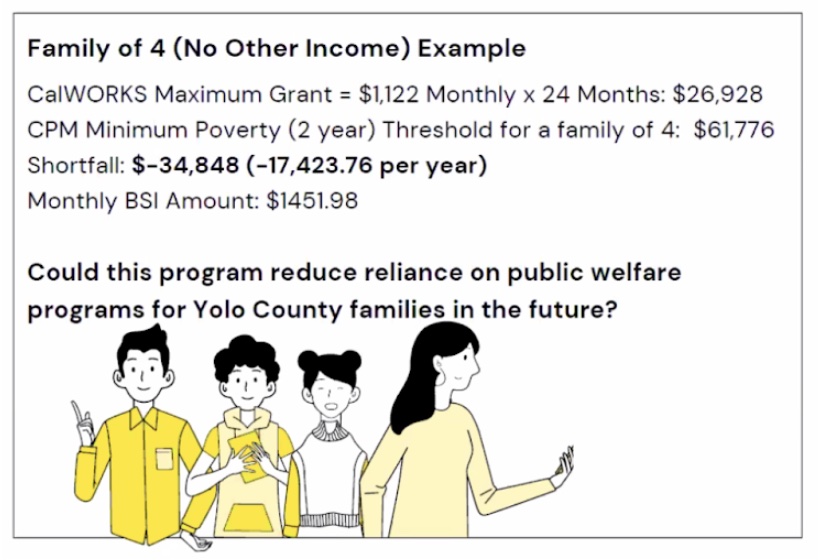
 By Vanguard Staff
By Vanguard Staff
Woodland, CA – Over one-fifth of Yolo County residents (20.9 percent) are living in poverty according to recent survey data from 2017 to 2019 (notably pre-pandemic). That represents the highest rate in the state.
“Poverty, and homelessness, disproportionately impact racial and ethnic minority families, and public policies have been slow to address these inequities,” the County said in a release on Friday.
On April 1, Yolo County and its Health and Human Services Agency will launch the Yolo County Basic Income (YOBI) Project, “putting resources in the hands of families marginalized by circumstances and systems working for their long-term health and financial stability.”
According to the count, the program “provides a calculated basic income to a preselected population of approximately 55 families selected from current Yolo County residents enrolled in the California Work Opportunity and Responsibility to Kids (CalWORKs) or CalWORKs Housing Support Program (HSP) with a child under the age of six or pregnant.”
However, the program is not open for applications from the public.
YOBI differs from other assistance programs because families have no additional means test or work requirement for two years and incur no extra staffing costs or administrative overhead.
“The Yolo County Board of Supervisors have committed to assist our most vulnerable populations across the County, including those in our newest program – Yolo County Basic Income project,” said Board Chair, Supervisor Angel Barajas. “YOBI attempts to break the cycle of poverty in Yolo County by offering additional income to families, allowing them to thrive and strive for a better future.”
According to the County, “Periods of homelessness compound stressors negatively impacting these families. The current work requirements mandated by CalWORKs originate from outdated standards of labor and anti-poverty ideas. The work requirements fail to address issues that cause difficulties for low-income households, particularly those led by women and people of color, to secure steady and self-sustaining jobs.”
“The social safety net in California just cannot keep up with rising costs of housing and everyday expenses. Families on traditional benefit programs do not have the ability to get ahead or plan for their future,” said Interim Health and Human Services Agency Director Nolan Sullivan. “By bringing the lowest income families out of poverty for two full years, we give them a chance to change their lives and change their children’s future. This is an investment in future generations of Californians, and we believe this program could be a model for the rest of the state.”
Yolo County has partnered with the University of California, Davis Center for Regional Change to conduct research and interviews with participants. This research will study child well-being, financial wellness, stress levels, and the implementation of the study. HHSA believes YOBI will further provide housing stability, increase financial literacy, parent education skills, income stabilization, long-term financial stability, and reduce or prevent child abuse.
The project is made possible by key donors: Sutter Health Foundation ($250,000), Office of Child Abuse Prevention (OCAP) Grant ($150,000), Yolo First 5 ($100,000), and Kelly, Stuart, and Travis Foundations ($41,500).
